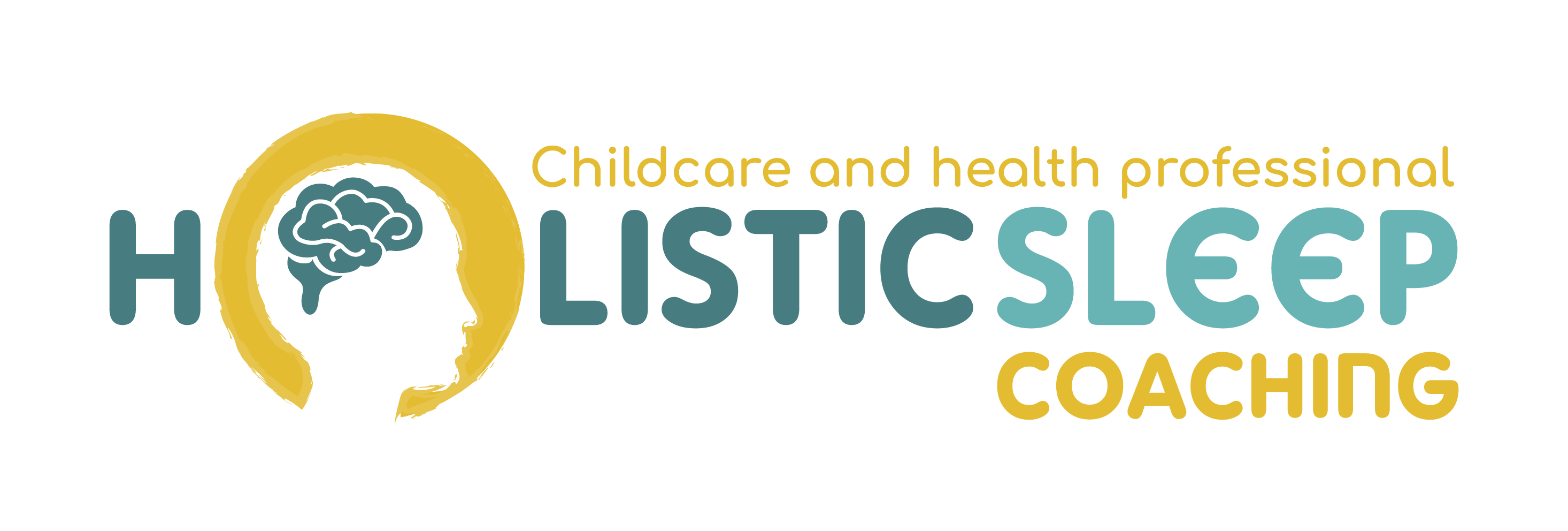As a sleep coach, you might wonder: Can responsive sleep support truly align with protecting parental mental health? Is it really possible to prioritize a baby’s sleep needs while ensuring parents stay well-rested and emotionally balanced? These are the types of questions that frequently arise, especially when juggling attachment-based care and the exhaustion of sleepless nights.
The good news? Responsive sleep support and parental mental health can coexist. With the right family-centered sleep strategies, you can create plans that honor both the baby’s developmental needs and the parent’s well-being. This approach not only promotes strong attachment but also offers sustainable solutions for better sleep and a healthier family dynamic.In this blog, we’ll dive into evidence-based strategies to support both baby and caregiver—whether you’re a new sleep consultant looking for practical methods or a parent searching for balance. Prefer a more detailed explanation? Watch the full video guide here, where I break down these concepts step by step.
Why Is Responsive Sleep Support Important for Both Baby and Parent?
When we talk about responsive sleep support, it’s easy to assume we’re only focusing on the baby’s needs and ignoring the parents’ well-being. You might be wondering, “Does responsive parenting mean sacrificing my mental health?” or “Do I have to put my baby’s sleep above everything else?”
The answer is no—and that’s not what we’re here to promote. Responsive sleep support is all about finding a balance between supporting your baby’s sleep development and safeguarding the parent’s mental health. It’s not a one-sided approach where parents are expected to ignore their own needs, even in difficult moments.
So, let’s break this down and clear up any misconceptions.
Table of Contents:
- Why Is Responsive Sleep Support Important for Both Baby and Parent?
- Where Does This Argument Come From?
- Why Non-Responsive Sleep Training Might Worsen Parental Mental Health
- It’s Not All About Sleep Anyway
- Conclusion: Can We Balance Mental Health, Sleep, and Responsiveness?
Where Does This Misconception Come From?
So, why do some people think we can’t support both a baby’s sleep needs and a parent’s mental health at the same time? This belief often comes from the link between sleep deprivation and poor mental health. Many assume that if we’re not focusing on giving parents a full night’s sleep, then their well-being is being overlooked.
But let’s dive deeper.
It’s crucial to understand that sleep and mental health are closely connected—they influence each other in both directions.
Which Came First: Sleep Problems or Mental Health Issues?
This is like the classic chicken and egg scenario. On one hand, mental health challenges—such as anxiety, postnatal depression, or trauma—might begin during pregnancy or as a new parent, making sleep issues worse. On the other hand, poor sleep (whether from a baby waking or a parent’s insomnia) can also lead to or worsen mental health struggles.
For instance, let’s say a baby wakes up twice a night. This is completely normal and developmentally appropriate. So, the problem may not be the night wakings themselves but rather parental insomnia—the difficulty in falling back asleep after the baby is settled.
Why Non-Responsive Sleep Training Can Impact Parental Mental Health
Now that we’ve explored the link between sleep and mental health, let’s focus on what parents really want. Many parents choose responsive sleep support because they value the emotional connection and attachment it fosters. In my experience working with thousands of families—and through the insights shared by graduates of the Holistic Sleep Coaching Program—I’ve seen firsthand why this matters so much.
When parents are going through a mental health struggle, the last thing they want is to go against their values. Choosing a non-responsive sleep method, such as cry-it-out, can lead to feelings of guilt and regret. Even abandoning their parenting style for a few nights can make them feel worse.
Why Sleep Training Isn’t Always the Solution
Here’s something that often gets overlooked: sleep training doesn’t always work. While it’s marketed as a quick fix, this isn’t always the case.
From my experience—and speaking with hundreds of families—I’ve noticed that children respond differently to techniques like cry-it-out or controlled crying. Over the years, I’ve identified three types of children when it comes to sleep training:
- Rapid Responders: These children adjust within a few days to a week.
- Slow Responders: It may take 2-4 weeks for improvement, and they often cry more during the process.
- Non-Responders: Some children don’t adjust at all, no matter how long the training continues.
A study by Kahn et al. supports this, showing the average improvement time for cry-it-out is 25 days, while controlled crying averages 32 days. Interestingly, parents who stayed with their babies during sleep training saw improvement in 43 days, which shows that cry-it-out isn’t always the fast solution it’s marketed to be.
It’s Not Just About Sleep
Let’s be honest: mental health struggles aren’t always about sleep. Even if a mental health crisis starts after having a baby, it may not be fully linked to sleep—or it could only be part of the problem.
When you go from having no children to becoming a parent, you experience countless life changes. Any one of these changes can lead to feelings ranging from mild anxiety to more serious mental health issues.
Here are some of the challenges parents might face:
- Relationship changes: Adjusting to a new dynamic with your partner.
- Loss of identity or role: Feeling disconnected from who you were before becoming a parent.
- Financial pressure: Managing the financial impact of a growing family.
- Career vs. parenthood: Struggling with balancing professional aspirations and parenting responsibilities.
- Overwhelming responsibility: The sheer weight of caring for a new life can be daunting.
While a good night’s sleep can make things feel better, it’s not a magic fix for these underlying issues. If a parent is struggling with anxiety, depression, or stress from any of these changes, better sleep won’t completely resolve those concerns.
Can We Balance Mental Health, Sleep, and Responsive Parenting?
Here’s the million-dollar question: Can parents really have it all—perfect mental health, a full night’s sleep, and no disruptions from the baby? The reality is that perfection may not be possible, but we can absolutely take steps to balance responsive parenting, optimal sleep, and parental well-being.
Here’s how we can support families in a holistic way:
- Set realistic expectations about what normal infant sleep looks like.
- Listen and empathize with parents’ struggles, understanding their unique challenges.
- Guide parents to appropriate mental health support if needed.
- Identify sources of support that parents can lean on.
- Offer practical hacks and solutions to make day-to-day life easier.
- Praise their efforts to maintain a responsive approach to parenting.
- Teach parents sleep strategies for naps and bedtime.
- Rule out any underlying issues contributing to sleep challenges.
- Share insights on sleep biology to optimize nighttime sleep.
- Create family-centered, sustainable sleep plans that respect both responsiveness and developmental needs.
So, is it possible to prioritize both mental health and responsive sleep support? Absolutely! As holistic sleep coaches, our mission is to craft sustainable, creative solutions that nurture the entire family—parents and babies alike.
Ready to Help Families with Compassion and Evidence-Based Support?
If you’re passionate about blending empathy, science, and responsiveness in your sleep coaching practice, book a strategy session today. Our Holistic Sleep Coaching Program can guide you in transforming your practice and supporting families with confidence. Ready to take the next step?

See how our Holistic Sleep Coaching Program can help you transform your passion for helping families with sleep into a thriving career. Book a strategy call today with a real human on our team.
Book A CallFrequently Asked Questions (FAQs)
How does sleep deprivation affect a parent’s mental health?
Poor sleep can worsen mental health conditions like anxiety and depression. But mental health challenges can cause sleep problems – it goes both ways. A responsive sleep approach helps parents manage both their mental well-being and their baby’s sleep needs.
What’s the difference between responsive and non-responsive sleep training?
Responsive sleep training focuses on understanding a baby’s need for connection, co-regulation and support, while non-responsive methods often utilise parent-infant separation and strict sleep routines, which are often stressful and involve crying alone.
Can sleep training affect a parent’s mental health?
Non-responsive sleep training methods like cry-it-out can sometimes lead to guilt and anxiety, especially for parents who value attachment-based approaches.
How can parents balance baby sleep and mental health?
Parents can balance both by setting realistic expectations for infant sleep, creating gentle, family-centered approaches, and seeking support when needed.

